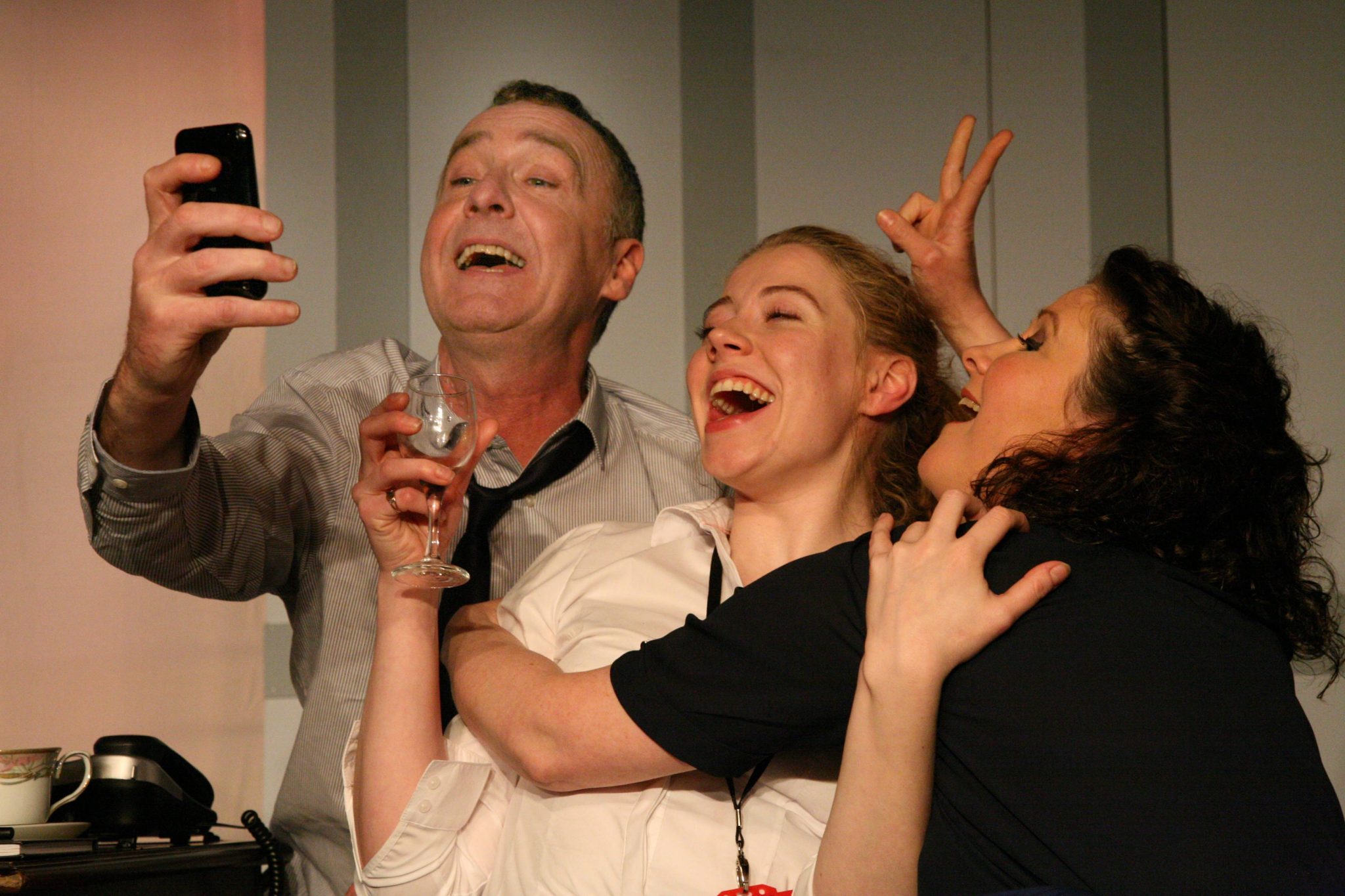So, an Englishman, Irishwoman and a Scotswoman walk into a bar, and the Englishman asks, “what do you think about the death penalty?”…
If the premise to Meghan Tyler‘s play sounds like the set up to a joke, then that’s not entirely misplaced. The Persians is a light-hearted political comedy that nevertheless dabbles in the kind of serious inter-party bargaining and socialising that actually goes on round the corridors of Westminster. The “bar” is the English Tory minister’s office (though you wouldn’t know it from the amount of booze they’re necking); the “Irish” woman probably wouldn’t thank you for that description, being a defiant Northern Irish DUP-er; and the Scotswoman has some serious issues with the way her Tory opposite number is placating Mail readers by trying to bring back capital punishment.
All three are gathered to thrash out a response to a public pro-death penalty petition. Port is poured to help free up their thinking and before you know it the politicians are taking their lead from the Ancient Persians, who allegedly made all their major decisions drunk, only implementing them if they all agreed again when they were hungover.
Paul Brotherston directs the cast of three – Tyler herself as the DUP’s Mary, Liam Brennan as Tory minister Ignatius (he prefers “Ian”), and Irene Allan as the SNP’s Kirsten. The opening salvos are a little clunky as the scene is set, but once that’s done, the banter and debate flow nicely. Tyler is superb in her role, her native accent lending her dialectal put-downs an extra kick. It’s not just her Tory coalition partner she takes aim at either. SNP Kirsten gets a mouthful for the 13 Scottish Tories she let in, among other things. Brennan makes for a likeable, sympathetic Tory, despite his readiness to send the homeless to the electric chair, and it’s easy to buy Allan as an SNP middle-ranker.
All take their political positions readily, quick with snappy, if obvious, digs at each other, as if this were the floor of the House. They’re a little uneven as drunks though. Some “handle their drinks” better than others, and it’s Tyler again who is most effective under the influence. Not that the slightly wobbly drunkenness detracts from the piece; if anything, it contributes to the not-taking-itself-too-seriously atmosphere.
Thinking about it, a populist movement to bring back the death penalty is unfortunately not as far-fetched a proposition as it once was. Some of the interest in the piece comes from that – the sense that like Yes, Minister, we’re not that far from reality. But it’s still just ridiculous enough to give the play its farcical momentum and bring it to its silly, social media related climax. This is a fun, accessible piece of new writing that seems as enjoyable to star in as it is to watch.
